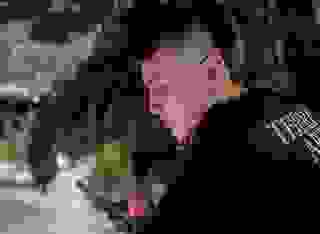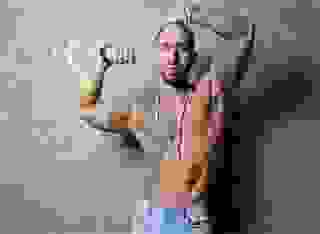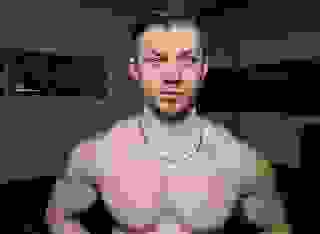Note: You can change font size, font face, and turn on dark mode by clicking the "A" icon tab in the Story Info Box.
You can temporarily switch back to a Classic Literotica® experience during our ongoing public Beta testing. Please consider leaving feedback on issues you experience or suggest improvements.
Click here"It would just be for a couple days. And if you're serious about selling off assets, you're going to need some help."
It was probably true. Damn, Eddie had him. "What will Lydia say?"
"Well, to be honest, she and I talked already. She's supportive."
After such an extensive look into Eddie's life with his wife and children, Gabe had come to know a side of him that, before, he could not have fathomed. As it turned out, Eddie wasn't nearly as cold, nor as quiet as Gabe had always thought. Still, this presented a strange, unprecedented intimacy with the man who was (Gabe hoped) still very much his boss. But what was there left to say? "Okay, Eddie. If you think that is best."
"Great. I'll see you tonight after work. It'll be late, but you know how that goes."
"I'll leave the door unlocked."
Eddie dismissed him. Before leaving, Gabe poked his head in and said, "There's no good parking in the markets. I'll leave you with my car. There's a spot under the building where you can park it. You want the gate code?"
Eddie crossed his big arms over his chest. "Take your car home, Gabe. I'll take the train."
An hour later, Gabe backed the car into the stall under his building. He lifted his bag from the trunk and trudged up six flights of stairs to his floor, finally arriving at his front door. The lacquered oak surface of it looked all of a sudden very old, rotted out, as if too forceful a knock would punch straight through. As Gabe entered, he was met with the forlorn sight of the kitchen. Formica (which badly imitated white marble) threatened to peel from the countertops; a wood and brass handle barely clung in place on the avocado expanse of the refrigerator door. An ailing fern hung in a basket from three gold chains in the pass-through, attracting layers dust. But it was not just the kitchen; the whole place stagnated and stood more than one year deep in decay.
That he had, in his somber distraction, stepped into the wrong unit was a temping improbability. When he was very young he used to play in the stairwell and sometimes mixed up the third and fourth floors, barging into the entryway of his downstairs neighbors. His shock and embarrassment would be intensified by their laughter as he hurried shamefully back out.
But of course this was his home. The home that used to be his parents' home. He knew now, with certainty, that it was time to depart. He would rid the entire place of its contents and he would sell it. If he was not yet allowed to return to work, at least he could bide his time with that.
The air was a thick, hot soup. Gabe threw open every window in the living areas and in his bedroom and faced an old metal box fan out the balcony doors. As it rattled and roared up to full speed, he went toward the closed door of his mother's room, which remained sequestered, as if the toxicity of what had occurred within was still communicable to the rest of the house. He turned the knob and the door clicked open, swinging partway inward under its own weight. He entered, saw the bed.
There had been no police investigation. Along with her body, officials had taken the alcohol and the medication from the nightstand, had collected the lone capsule from the carpet. Those omissions aside, the room looked exactly the same as it had six nights earlier, when he had discovered her.
(That preferred word—discover—would forever strike Gabe as bizarre. If you happen upon someone who is dead, you do not see that person. You discover them.)
Gabe heard the knock around 3:30 in the morning. Eddie filled the entire doorway, stepping slowly through after fielding Gabe's silent welcome. A duffel bag hung from his inflated shoulder and a pillow was wedged in his armpit. He looked like an enormous child attending a slumber party.
"You didn't have to bring a pillow. I have plenty to lend you."
"This is a memory foam pillow," Eddie explained. "Where would you like me to keep my stuff?"
"In here." Gabe led Eddie into his own room. "I'll take the couch."
Eddie took one look at Gabe's bed and left for the living room, dropping his belongings at the foot of the coffee table. "I'll take the couch. You sleep in your own bed." He glanced around. "Haven't been here in a long time. Mind if I do a quick tour?"
"No, that's fine."
He followed Eddie from room to room, at one point apologizing for the way everything looked. Eddie reacted as if he did not understand. "It looks like a home that was happily lived in for many years."
They reached south end of the house, the half-open door to his mother's room. "She was in here?" Eddie asked.
"Yeah. On the bed."
They entered together. Eddie stood very still for a long time, silent, just staring at the bed. An odd noise came from his throat. "Well...fuck." He drew in a long breath, released it, turned to Gabe. "You must be getting tired."
"Not really."
"You want to talk about anything?"
A distant crashing of waves came through the large bedroom window. Eddie had apparently stolen someone else's personality. "Like what?"
"I don't know." Eddie glanced down, as if suddenly aware of his shoes' disallowed presence on the carpet. "I just think this is the kind of thing that should be talked about. How long will you be up?"
Gabe looked around the room. His mother's ghostly presence lingered like a film over every inch of it. "I don't know. I might be up all night."
"I think we need to talk about this."
A feeling of dread descended upon Gabe. But Eddie was adamant; there was no point in fighting it. Gabe shut off the bedroom light as he trailed Eddie out of the room. They went to the living room, sat down opposite one another, were quiet for a minute.
"I need to know what's going on in your head, Gabe."
Eddie's words expanded into the room like a balloon until Gabe couldn't stand it anymore. "I don't know how to answer that, Eddie."
"Your mother has killed herself. What are you feeling right now?"
"Regret." The word came out before he had the chance to think it over.
"That's normal. Anyone would feel that."
"No, not a normal kind of regret." Gabe moved his fingers quickly over one another. "I regret my own actions. I feel very guilty."
"What do you have to feel guilty about?"
"Everything."
Eddie frowned. "Gabe, that doesn't make any sense."
Of course Eddie would think that. Anyone who had not lived in the mess of this home for the past year would think that. But Gabe had witnessed first-hand his mother's aching descent. Gabe, who could have chosen to recognize his mother's decay for what it might very well have been—nothing more than clinical depression—had instead indulged in her narrative, had practically helped her arrive at this shattering conclusion. He could not bring himself to look at Eddie as he said, "I knew she was a danger to herself. I did nothing. What kind of person does that make me?"
Eddie leaned back in his chair. "I doesn't make you any kind of person in particular."
"Yes it does. I feel like a monster. I predicted it. I could have stopped her—"
"No, you couldn't. I know it seems that way, but there was nothing you could have done."
"How do you know?"
Eddie stared out past Gabe, clear across the room, as if his answer were derived from the whispering shadows at the foot of the hall. "Because when a person really wants out, then sooner or later, one way or another, they get out."
But this explanation did not satisfy Gabe. "I should have told her doctor how bad she was at home. She knows how to put on an act. It's a really good one. Totally convincing."
"If I understand correctly, she had seen doctors for many years. I believe all would have known how bad it was. It's their job to know. Gabe, sometimes there is nothing left to do for a person."
The thick and stormy air of the sea flowed in from the balcony and encircled them both. Down on the street, a two-stroke engine clanged past. Then the room became still again.
The big man folded his arms across his chest. "Tell me more."
"I don't know," said Gabe. "I just wish she hadn't wanted out. All my life, she wanted out." He looked over at a teal-and-magenta pile of hair ties on the end table. He noticed the scraps of paper lining the base of the couch, made out his mother's incessant scrawl meeting their torn limits. He looked anywhere but at Eddie. He said, to the notes, "Anyway, I guess she finally got what she wanted, but she left me all alone here."
Now it was Eddie who seemed no longer able to look at Gabe, turning his heartbroken gaze down to his feet. "No, Gabe. It's not like that. You're not alone."
"If that's true, then why do I feel that way, Eddie? I feel incredibly alone."
Even Eddie had no answer for this. See, thought Gabe, this is what happens when you complain. Now go on, say something to put his mind at ease. "It's alright, though. It's a tough thing to get at. It's like, even with all this guilt, my gut tells me this was the right thing—her leaving. I never encouraged her to do this. But I went along with her. I bought into it. And now part of me thinks it was right. It was supposed to be. I'm terrified to say that to anyone, but I think it's true. I hope you don't think bad of me for feeling that way."
"I don't think bad of you. I would never." He lifted himself, looked square at Gabe. "Man, she's just...she's just gone. I mean, it's over and done with. And it's not your fault. It will never be your fault."
Gabe was all of a sudden overcome with grief. "I wish I wasn't alone. I wish she had been happy." He began to cry, face-to-face with the man for whom he still harbored an ounce of fear. "After my father died, I wanted her to stay here with me. I wanted her to want that. I wanted to be enough. But I wasn't, and she didn't." At this, Gabe broke down completely.
Eddie rushed over to be next to him. Gabe's small, slender frame was pulled directly into Eddie's encompassing grasp. "There is nothing left to do but feel all of this right now. One day soon, it won't hurt this much. I promise."
Eddie's voice boomed through his chest, and Gabe felt himself instantly relax, at first crying harder, and soon, hardly at all. He was shocked when, even as the seconds passed, Eddie did not let him go. Gabe allowed himself to settle into the embrace. It was the most incredible feeling; Eddie's arms were like hot, firm pillows against his chest, shoulders and back. Eddie smelled deeply of his familiar cologne, of sweat, even of the sage surrounding the encampment. Gabe moved in toward the man's chest, reached his free hand slightly upward, felt the pronounced contour of Eddie's right pectoral muscle through thin white cotton. Then his fingers descended slowly over the soft ridges of Eddie's abdomen, landing on the brown leather ledge of his belt.
Eddie shifted in an odd way, cleared his throat and released Gabe completely. "Gabe. I know what it is you're wanting. Actually, maybe that's something you need right now. I do believe it could help. But that's a kind of help I can't give you, okay?"
Immediate regret, shame, disgust, at the vileness of what he had sought, at himself for the atrocity he had just committed: all of it pressing him so hard into the couch that he couldn't move.
"Gabe. Look at me." (But that was impossible.) "There's nothing wrong with it. But it's not here. It's someplace else, understand?"
Gabe could not bring himself to speak.
"Gabe—damn it. I know, okay? I've known this about you. I'm not alarmed. So just stop this. Stop this guilt. Stop hating yourself. If you're sad that your mother is dead, cry about it until you can't anymore. And, fuck, if you need...if you need that other thing, then go out and find it, and don't feel so goddamned ashamed about the whole thing." His voice softened. "All I'm saying is that you won't find it here, okay?"
Gabe looked once at Eddie, turned away.
"Okay?" Eddie repeated.
"Okay."
"There we go. I'm here for you. Do you need to talk more? Or do you want to get some rest?"
"I just want to go to sleep."
"Alright. I think that's just fine. We'll talk more tomorrow. Sleep in. Sleep until noon, or longer."
Gabe smeared the cooling tears from his cheeks. "Okay, Eddie."
--
Gabe woke up close to one in the afternoon when Eddie knocked hard on his bedroom door. "Hey, Gabe, I'm out of here. I'll stop in to see Lydia and the kids, then I'm headed out early to camp."
Gabe heard the front door close before he could choke out a reply. He fell back asleep and didn't wake up again until nearly three, sweating into his sheets.
The memory of the previous night flared up before his eyes opened. He must have completely lost his mind—only a crazy person would have done that...and to Eddie, worst of all. Eddie, who had immediately, mercifully pardoned him...Eddie, who knew him, who knew what he was. How could that be? It seemed impossible, as did facing Eddie again after what had happened, in just twelve hours' time. But Gabe knew he would do just that; he would accept Eddie's forgiveness for the miracle it was. He would shut up, and he would move on.
Gabe began to search his mind, search the house, for his next course of action. A large open space existed between the living room and dining room. If stacked and organized neatly, everything was sure to fit here. He went to his mother's room (which was now quickly shedding its imagined energy) and began ripping objects from their long-time homes. He removed books from a sprawling set of shelves by the armload, constructing a miniature city of paper towers on the floor. He heaved the mattress and boxspring down the hall, leaning them against the wall in the dining room. He stuffed the bedding into bags. Everything that was his father's had remained absolutely undisturbed since the day of his death. Marco's scarred oak chest of drawers contained most of his casual clothes, which Gabe emotionlessly bagged; a dresser valet and its contents were packed into a box along with his father's ties, gold watches and other small items. He tore out the ornate drawers of the vanity and moved it in pieces to the the living room. Then he dragged the empty bed frame a few feet to the center of the bedroom, attempted to lift it onto its side and realized it would not clear the frame of the door. He would have to dismantle it. Breathing hard, he looked around the room. There were deep grooves in the carpet where the furniture had stood. Nothing remained untouched except for Bonnie's black dresser.
Of course Gabe had not forgotten the volumes waiting patiently for him inside its top drawer. There were three and they were all fairly large, thick, leather-bound. He knew that about them because she had used to store them in plain sight, though he had never laid hands on them. Gabe opened the drawer and saw them lying, stacked, next to a white shoebox of tangled lingerie. He plunged his hands down along their worn edges, lifted all three out at once, pressed his nose into the topmost cover—it carried a faintly sweet scent—and then set them aside. Swiftly, quietly, he emptied the clothing from the rest of the drawers into an oversized black trash bag. He dragged the bag and the empty dresser down the hall, then removed several brass-framed pictures from the wall (all art prints except for one family photo dated 1991, in which Gabe's ten-year-old smile was an innocent beacon).
By the time Gabe stopped to rest, all that remained in the room were the bed frame and a sad black lump against the wall—the stack of diaries. He had anticipated that the space would take on some foreign, desecrated quality now that it was nearly empty, but it hadn't. It looked, as he stood panting in the doorway, like nothing more or less than his parents' bedroom with everything removed.
Gabe heated up can of chili from the pantry, sat himself in front of the television and ate as if it were his first meal in days. He showered, then, still nude, began gathering her notes from the floor, scooping every last senseless scrap into a dustpan before dumping them all into the garbage. He dressed, went back to the bedroom, took up her diaries under one arm, poured a glass of water and went out on the balcony to read.
Gabe woke up into darkness, propped uncomfortably on the bare plastic chaise lounge. The diaries lay digested, closed and stacked neatly at his side. The sky was black—he could not be sure how long ago the sun had set. He stood at the railing and looked down at the towers and the bit of water fluttering between them. The breeze moved evenly against his face. It was not cold out, yet he no longer sweated into his t-shirt. He gathered up the diaries and went inside. Hunger had struck again.
—
Eddie returned just before three in the morning and gaped at the new wall of items stacked methodically in the living area. "Wow, you've gotten a lot done."
Gabe couldn't bring himself to make eye contact with this man, this new person he hadn't known, who was so much more kind and generous that he ever could have guessed. "Didn't have anything better to do."
"You tired?"
"No."
"Good. We need to talk about work. Got any coffee?"
Gabe would give anything ensure the events of the previous night never came up again. Work was the perfect diversion. He brewed a plump glass pot and placed it on a crocheted holder between them, among the piles of clutter on the dinner table. They faced one another across an expanse of oak and blue inlaid tiles.
Eddie poured himself a cup, cleared his throat. "Gabe, back when your father was around, I took it for granted that everything would operate based on his methods and preferences. I mean...he was the big man. Big Boss. Everything was according to him. So I never really thought about any other way of doing things besides...you know...the way he wanted them done. And anyway, it wasn't a bad methodology."
Gabe didn't know what to say. Was Eddie looking to change how things were done? And if so, did he really think he needed to justify those changes to Gabe?
"What I'm saying is, Marco was big into this idea of compartmentalization. He swore by it. Each worker knows exactly what he needs to know in order to perform his assigned tasks. No more, no less. Marco wasn't the first to do it that way. Otero's father ran things the same way back in the seventies. Otero himself had mixed feelings, but your father convinced him they should return to it. Anyway, I bet you can guess one of the biggest policies that came out of all that. I mean...the thing he didn't want any of the laymen to know."
Yes, Gabe could guess. Among the barrage of careful instructions leading up to his first day, one of his father's edicts stood out from the rest: No one could know about Gabe, absolutely no one, besides Eddie and Otero. Their familial connection would be kept absolutely secret.
"That he was my father," Gabe now said to Eddie.
"Yes." Eddie looked down at the table. "You should have seen him, Gabe. He was adamant."
"I never understood why it was so important to him."
Eddie sighed. "Honestly, I don't know. I think he felt like he was protecting you in some way. He didn't put it to me like that, though."
"How did he put it to you?"
"He said he wanted you to give you a chance to leave your own mark."
Gabe scowled in an attempt to mask his sadness. "I don't even know what that means."
"Your father left his mark on a lot of people, Gabe. It was a distinct one. And it's not going to fade anytime soon, for any of us."
Gabe forced a nod.
Eddie cleared his throat. "As you might know, Otero doesn't like to micromanage. These days, as far as the Delta Encampment is concerned, I'm nearing the same level your father was at. I'm calling the shots now, whether I signed up for it or not. I agreed with Marco on a lot of things, Gabe, but not everything."








